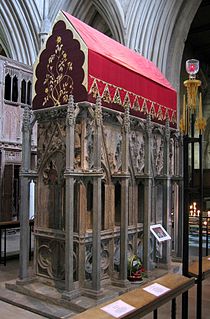Eusebius was a Roman historian, exegete and Christian polemicist.
Pope Siricius was the bishop of Rome from December 384 to his death. In response to inquiries from Bishop Himerius of Tarragona, Siricius issued decrees of baptism, church discipline and other matters. These are the oldest completely preserved papal decretals. He is sometimes said to have been the first bishop of Rome to call himself pope.
The 300s decade ran from January 1, 300, to December 31, 309.
The 360s decade ran from January 1, 360, to December 31, 369.
Acacius is a masculine given name which may refer to:
Agapius was a Christian martyr killed at Caesarea in AD 306. He is recognized as a saint by the Catholic Church. His martyrdom is recorded by Eusebius of Caesarea in his work The Martyrs of Palestine. Agapius was arrested in AD 304. He remained in prison for two years and was tortured on multiple occasions. He was brought out to the arena many times and presented to the judges. There he was threatened and reserved for later matches. The judges, Eusebius notes, must have been motivated either out of compassion or the hope that he might change his mind and renounce Christianity. Finally he was brought to the arena and presented to the emperor Maximinus. He was offered a pardon on the condition that he disavow his faith. According to Eusebius, he not only refused the offer, but he is said to have cheerfully rushed headlong into the bear. The animal inflicted severe injuries, but Agapius survived. Stones were affixed to his feet and he was drowned in the Mediterranean on the following day.

May 9 - Eastern Orthodox Church calendar - May 11

Saint Dionysius the Great was the 14th Pope and Patriarch of Alexandria from 28 December 248 until his death on 22 March 264. Most information known about him comes from his large surviving correspondence. Only one original letter survives to this day; the remaining letters are excerpted in the works of Eusebius.

June 26 - Eastern Orthodox Church calendar - June 28
The Patrologia Graeca is an edited collection of writings by the Christian Church Fathers and various secular writers, in the Greek language. It consists of 161 volumes produced in 1857–1866 by J. P. Migne's Imprimerie Catholique, Paris. It includes both the Eastern Fathers and those Western authors who wrote before Latin became predominant in the Western Church in the 3rd century, e.g. the early writings collectively known as the Apostolic Fathers, such as the First and Second Epistle of Clement, the Shepherd of Hermas, Eusebius, Origen, and the Cappadocian Fathers Basil the Great, Gregory of Nazianzus, and Gregory of Nyssa.
Apollinaris may refer to:

Prior to the revision of the Anglican Church of Canada's (ACC) Book of Common Prayer (BCP) in 1962, the national church followed the liturgical calendar of the 1918 Canadian Book of Common Prayer. Throughout most of the twentieth century, the situation in Canada resembled that which pertained in much of the Anglican Communion: There was uncertainty as to whether post-Reformation figures could or should be commemorated. In the words of the calendar's introduction, "New names have been added from the ancient calendars, and also from the history of the Anglican Communion, without thereby enrolling or commending such persons as saints of the Church." The 1962 revision added twenty-six post-Reformation individuals, as well as commemorations of the first General Synod and of "The Founders, Benefactors, and Missionaries of the Church in Canada." Of the calendar days, twenty-eight were highlighted as "red-letter days" — that is, days of required observation.

Seeing Islam As Others Saw It: A Survey and Evaluation of Christian, Jewish and Zoroastrian Writings on Early Islam from the Studies in Late Antiquity and Early Islam series is a book by scholar of the Middle East Robert G. Hoyland.
Agapius of Palestine was a Christian martyr from Gaza, beheaded along with seven others by order of Urban, governor of Palestine, in the year 303 or 304 under the Great Persecution of Diocletian. Eusebius records that Timolaus of Pontus, Dionysius from Tripolis in Phœnicia, Romulus, said to have been sub-deacon of the parish of Diospolis, Plæsius of Egypt, and two men named Alexander, one from Gaza and the other from Gazahad. These six young men bound themselves and surrendered to Urban in the hopes of becoming martyrs. They openly professed their Christianity and said that their faith made them unafraid of the wild animals of the arena. Urban had them put into prison. A few days later they were joined by two others, one a certain Dionysius, and the other Agapius, who is said to have been tortured in the past for his faith. All eight were beheaded in Caesarea Maritima on the same day.

The title Virgin is an honorific bestowed on female saints and blesseds in both the Eastern Orthodox Church and the Roman Catholic Church.
Agapius was a Christian philosopher associated with Manichaeism. He is supposed to have lived in the fourth or fifth century.

The Church Fathers, Early Church Fathers, Christian Fathers, or Fathers of the Church were ancient and influential Christian theologians and writers who established the intellectual and doctrinal foundations of Christianity. There is no definitive list. The historical period during which they flourished is referred to by scholars as the Patristic Era ending approximately around AD 700.
This page is based on this
Wikipedia article Text is available under the
CC BY-SA 4.0 license; additional terms may apply.
Images, videos and audio are available under their respective licenses.





